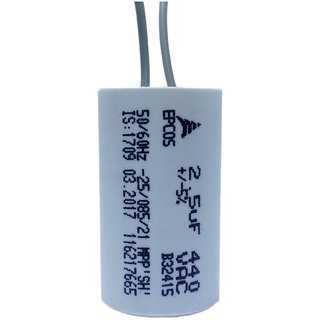A capacitor is a fundamental electrical component used in various electrical and electronic circuits. It is designed to store and release electrical energy in the form of an electric field. Capacitors consist of two conductive plates separated by an insulating material called a dielectric.
Here's a brief explanation of capacitors and their significance in electrical equipment:
**Construction and Working Principle:**
1. Two Plates: Capacitors have two parallel conductive plates, typically made of materials like aluminum or tantalum.
2. Dielectric: The plates are separated by a dielectric material, which can be ceramic, paper, plastic, or other insulators.
3. Storage of Energy: When voltage is applied across the plates, an electric field forms between them. This field stores electrical energy by accumulating opposite charges on the plates.
**Key Functions of Capacitors:**
1. Energy Storage: Capacitors store electrical energy in the form of an electric field. They can release this stored energy when needed, providing a burst of electrical power to a circuit.
2. Filtering and Smoothing: In electrical circuits, capacitors are used to filter and smooth voltage and current fluctuations. They can stabilize power supplies by reducing voltage ripples and spikes.
3. Timing and Oscillation: Capacitors can control the timing of electrical signals in circuits. They are crucial in timing applications like clocks and oscillators.
4. Coupling and Decoupling: Capacitors enable the coupling of AC (alternating current) signals while blocking DC (direct current) signals. They are used to separate AC and DC components in circuits.
5. Signal Processing: In electronic circuits, capacitors are employed in signal processing, such as in audio crossovers and tone control circuits.
6. Motor Starting: Capacitors are used in electric motors to provide the initial torque required for starting. These are known as start capacitors.
7. Pulsed Power: In flash photography and defibrillators, high-energy capacitors are used to deliver short, powerful bursts of energy.
Capacitors are essential components in a wide range of electrical and electronic equipment, from basic circuits to complex electronic devices. Their ability to store and release electrical energy, smooth voltage, and control timing makes them indispensable in modern technology.
In summary, capacitors are vital elements in electrical and electronic equipment due to their capacity to store and release electrical energy, filter voltage, control timing, and perform various other functions crucial to the operation and efficiency of electronic circuits and devices. Their versatility and widespread use make them integral to the functioning of numerous electrical and electronic systems.
